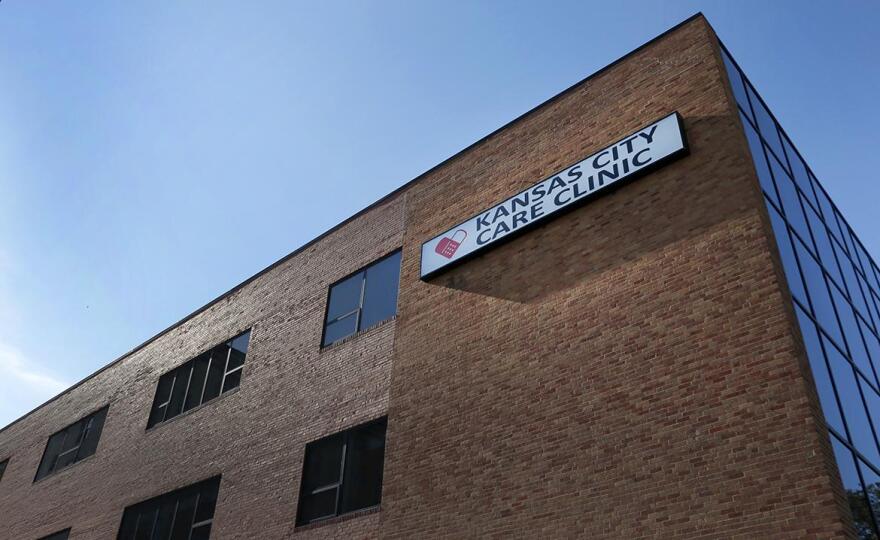Sheri Wood, the longtime CEO of KC CARE Health Center, is stepping down.
Wood oversaw the expansion of what was essentially a mom-and-pop health clinic in midtown Kansas City into three locations across the city.
When Wood began at KC CARE 22 years ago, it had a staff of 18 and a budget of $1.2 million. Today it boasts a staff of more than 150, a budget of about $16 million and more than 700 volunteers.

Wood could not be reached for comment Friday. But in a written statement, she said the health center "is in a strong position and it is a good time to retire and turn it over to new leadership and its dedicated staff and volunteers.”
“It has been a privilege to serve as the CEO during its transformative years of being the largest free clinic in the country and a Federally Qualified Health Center,” Wood said.
Previously known as the Kansas City Free Health Clinic, the health center took its current name in 2013 when, following the enactment of the Affordable Care Act, it began accepting insured patients in addition to the uninsured and underinsured.
The clinic served more than 14,000 people in fiscal 2017, according to its last IRS filing — a far cry from the gaggle of elderly patients, students and veterans it treated when it opened in 1971 as the Westport Free Clinic in the lobby of the Alcazar Hotel.
“It started for hippies with gonorrhea. And maybe a cold,” local filmmaker Gary Jenkins told KCUR in 2013. “The attitude and spirit was that we don’t have anything to do with the government. We don’t need to take money. We just need to help people.”
The clinic was a pioneer in the provision of services to people with HIV/AIDS and, unusual at the time, provided anonymous counseling and testing in the 1980s, when the HIV/AIDS crisis exploded.
It added mental health and behavioral counseling to its suite of services more than 20 years ago. In 2001, after raising $2.5 million, it bought its current headquarters at 35th and Broadway.
In 2015, it was designated a Federally Qualified Health Center (FQHC), which qualified it for federal funding and enhanced Medicare and Medicaid payments. FQHCs are required to serve underserved areas or patients and to provide comprehensive health services.
Last year, it replaced “clinic,” the one word that had survived its various name changes, with “health center” in recognition of its growth and scope of services.
“Sheri has been a strong leader for more than two decades and our entire region has benefited greatly from her passion, enthusiasm and expertise,” Bert Malone, chairman of KC CARE’s board, said in a statement.
“She has done an exceptional job expanding KC CARE’s offerings and solidifying partnerships that have allowed us to deliver on our mission of promoting health and wellness by providing quality care, access, research and education to the underserved and all people in our community.”
The majority of KC CARE’s revenue comes from contributions and grants. In the fiscal year ending in 2017, it took in nearly $12 million, of which just over $1.4 million consisted of payments for services, according to the Form 990 it filed with the IRS. It ended the fiscal year about $540,000 in the red.
David Garrett, a longtime health executive and former director of finance and operations at KC CARE, has been named interim CEO while the KC CARE board searches for a permanent CEO.
Dan Margolies is a senior reporter and editor at KCUR. You can reach him on Twitter @DanMargolies





